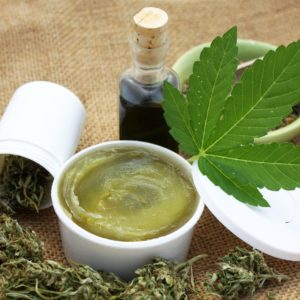After decades of political pressure and persuasion, industrial hemp, defined as cannabis with a THC of less than 3 percent by weight, was finally descheduled in the 2018 Farm Bill that Congress sent to President Donald Trump’s desk on Wednesday night. Trump is expected to sign the bill next week. While a lengthy regulatory process still lies ahead, the cannabis industry is on the whole excited about the new growth possibilities CBD legalization allows, not just for their industry, but also for farmers and medical researchers.
Cannabis has two primary active ingredients: Cannabidiol (CBD) and THC. CBD does not make people feel “stoned” the way THC does. Instead, it has numerous health benefits for a range of medical conditions, including arthritis, chronic pain, and epilepsy. Newly legal “industrial hemp” will not be much good for getting stoned high, but it could add increased vigor to the economy.
“With hemp and all of its derivatives officially removed from the controlled substances act, CBD moves from a legal gray area into the light,” said Bethany Gomez, director of research at the Brightfield Group, a market research firm specializing in cannabis.
“That legal gray area has kept the industry small and fragmented–this shift will allow for CBD to make its way to the shelves of larger scale, mainstream distribution channels and pave the way for the large mainstream consumer packaged goods companies in industries like drinks, beauty, pet, skin care and tobacco to develop CBD products and capitalize on this emerging industry.”
Legal uncertainty has meant that the commercial cannabis industry has been largely developed by small firms. Now, major food, beverage, and drug companies are expected to move into the market. Many in the industry are predicting a coming wave of lotions, cosmetics, and foods containing CBD, which could be a $22 billion market. They believe that growth in CBD-related products may happen even faster than growth in sales of marijuana itself.
On a more practical level, the farm bill will make it easier for cannabis businesses to access capital. As long as hemp was considered illegal under federal law, businesses were unable to acquire accounts and loans from FDIC certified banks and to have their stock listed on domestic stock exchanges. All of this is about to change.
“[The Farm Bill] will likely allow U.S. hemp companies to list on senior U.S. stock exchanges, where previously, we have seen some hemp companies limiting their listing to Canadian exchanges,” says Khurram Malik, CEO of Biome Grow, a cannabis conglomerate based in Canada.
With additional capital, companies will find it easier to expand, either into new geographic markets or new product lines. All of this is a boon for consumers. It may also be a new market for American farmers, who have been feeling the pain of low commodities prices in recent years.
“By treating hemp as just another commodity, it gives farmers an opportunity to be part of a growing economy as new markets develop for hemp to be used as paper, cloth, building materials, plastic, and bio-fuel. This could be a real shot in the arm for struggling farm families,” said Barry Grissom, a senior vice president at Electrum Partners, a cannabis business advisory firm.
In fact, providing a new cash crop for Kentucky farmers was one of the major reasons why Senate Majority Leader Mitch McConnell became a staunch supporter of hemp legalization. On Thursday, McConnell even spoke on the Senate floor about how the pro-hemp provision would benefit farmers in his home state.

